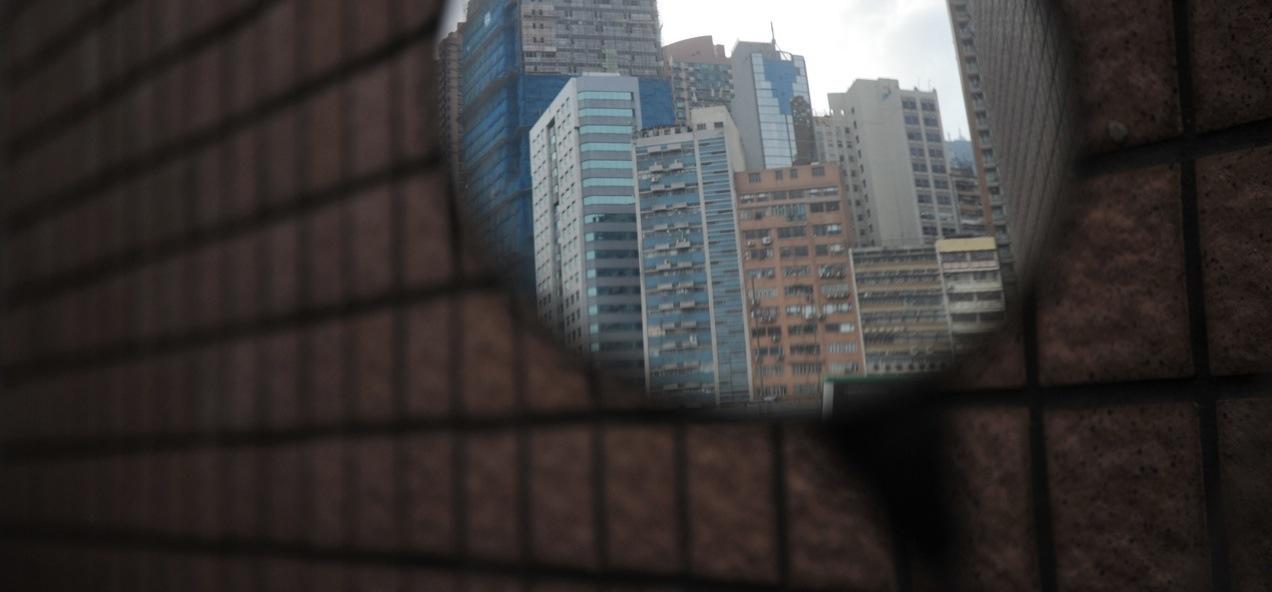Hong Kong’s anti-corruption crime fighters
One week ago, Hong Kong was rocked when the Independent Commission Against Corruption arrested two of its richest citizens, Thomas and Raymond Kwok, who are collectively worth $17 billion.
HONG KONG — After a bruising, bare-knuckle election widely seen as having been tainted by Beijing, Hong Kong’s corruption watchdog has reinvigorated civic morale here by taking aim at two of the richest men in a city that once lionized its tycoons.
One week ago, the city was rocked when the Independent Commission Against Corruption (ICAC) arrested two of its richest citizens, Thomas and Raymond Kwok, who run Asia’s biggest real-estate company and are collectively worth $17 billion, according to Forbes.
The brothers were brought in on suspicion of bribery and corruption in connection with Hong Kong’s former second highest-ranking politician, Rafael Hui.
To longtime watchers of Hong Kong’s battles with corruption and heavy-handed influence from the mainland, the ICAC move sends a heartening message: the rule of law still reigns strong here.
“It sends a positive signal that the ICAC is not afraid to tackle the people at the very top,” said Simon Young, director of the Center for Comparative and Public Law at the University of Hong Kong.
More from GlobalPost: Billionaire Kwok brothers arrested in Hong Kong
A uniquely Hong Kong institution, the ICAC was created in 1974 under colonial government to battle intense corruption in the city’s police force and fire department. Stories from that era abound of crooked cops, and firemen demanding cash before putting out flames.
Surprisingly, the agency succeeded so well that it even put the police superintendent behind bars. But the battle with the Kwoks marks a dramatic climax in this southern Chinese city's campaign to remain a beacon of clean government in the region.
“They [the ICAC] are extremely important. This is the critical force in ensuring integrity among our police officers and our civil servants,” Young said.
As a result, these anti-corruption crime fighters have long been considered the city’s pride. In public opinion polls, the ICAC often ranks at the top for popularity. Australia has created its own ICAC modeled on it. Because of its efforts, this harbor city of 7 million is seen as the 12th least corrupt jurisdiction in the world, while the US ranks 24th, according to Transparency International's 2011 Corruptions Perceptions Index.
But that reputation has lately been tarnished.
“In the last 10 years and more, concerns about corruption and collusion have been growing,” said Joseph Cheng, professor of political science at the City University of Hong Kong.
More from GlobalPost: Burma open for business?
In recent years, the agency has been criticized for going after small-fry targets — low-level civil servants — while leaving the business and political elite relatively untouched. This failure increased suspicions among ordinary Hong Kongers that there was collusion at the top going unpunished.
“In terms of the standard of ethical behavior, longtime people feel the bar has been lowered,” said Robert Broadfoot, founder and director of a Hong Kong risk-consultancy firm.
There have also been worries that the ICAC has been too slow to adapt to laws that forbid some of its older, more underhanded tactics — like secretly tapping phones. As a result of failing to follow proper procedures, they ultimately lost some high-profile cases, including the prosecution of Stephen Chan, a prominent television executive, in 2010.
The Kwok brothers have yet to be charged and are currently released on bail. If they are pulled into a court fight, it won't be pretty; the brothers would likely raise a daunting legal challenge by drawing on the best legal talents from the UK and Hong Kong, Young says.
Even so, this dramatic resurgence for the ICAC comes at an opportune time, playing as it does against the backdrop of elections that many saw as a puppet show orchestrated by Beijing.
The new chief executive, populist C.Y. Leung, was elected after China's rulers signaled him as the favorite after their first choice, Henry Tang, became untenable due to marital and housing scandals. Suspicions that Leung is in the pocket of the Communists were further inflamed when he spent an hour and a half at the “Liaison Office” — Beijing’s outpost in this semi-autonomous territory — on his first day in charge.
More from GlobalPost: Hong Kong calls mainlanders locusts
The ICAC action is reassuring to observers of Hong Kong’s ongoing fight to preserve its corruption-free reputation. One of the reasons the city remains a draw for global finance is that its institutions have more credibility than others in Asia, Broadfoot said. “The biggest danger, of course, is that it loses that competitive edge, to lose what it’s achieved by fighting corruption."
But there is a limit as to how high the ICAC can go in its assault on graft and fraud. While the Kwoks were among the city’s biggest — and most respected — power brokers, an investigation against the city’s previous chief, Donald Tsang, revealed that the powers of the ICAC are limited because the Prevention of Bribery Ordinance does not cover the chief executive.
“Hong Kong is a funny town,” Robert Broadfoot said. “The name is the Independent Commission Against Corruption, but there are limits on its independence… Going after the Kwok brothers doesn’t mean that there aren’t still people who can’t be touched.”
Other China watchers echo his caution that this arrest does not mean that bigger battles might not lie ahead.
“There is of course a general worry,” Cheng said. “If a corrupt case involves a major state-owned enterprise from the mainland, or some princeling [i.e., Communist Party elite], would ICAC still be able to tackle these things?”
Our coverage reaches millions each week, but only a small fraction of listeners contribute to sustain our program. We still need 224 more people to donate $100 or $10/monthly to unlock our $67,000 match. Will you help us get there today?
